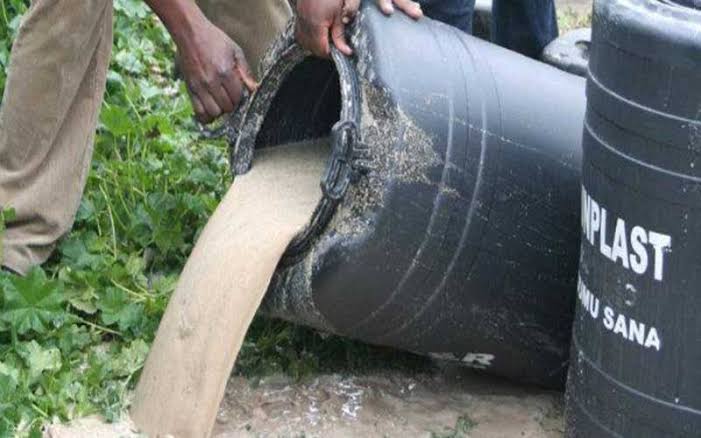Stakeholders in the alcohol industry have called on the National and County governments to involve all players in the sector in the formulation of policies and laws to regulate the industry.
The Alcoholic Beverages Association of Kenya (ABAK) and the Bar, Hotel and Liquor Traders Association (BAHLITA) said the involvement of all stakeholders would help seal the loopholes that have resulted in the reported death of 13 people in Kirinyaga County after consuming illicit liquor.
The two associations condoled with the families of the victims and survivors of bad liquor who hailed from Kangai village in Kirinyaga. The drinkers were reported to have experienced blurred vision, blindness, and confusion after taking illicit alcohol.
The deadly incident has revived debate on the efforts by the two levels of government to deal with alcohol abuse in the Mt. Kenya region. One of the main pillars of these efforts has been the enactment of laws in the County Assemblies.
ABAK Chairman Eric Githua said the Bills under consideration in some of the assemblies in the region were likely to drive underground alcohol trade and create circumstances that enable illicit alcohol to thrive.
The Bills are based on the Model Alcoholic Drinks Control Bill developed after a meeting in April 2023 in Nyeri that brought together leaders from the Mount Kenya region and parts of the Rift Valley.
“While the intentions of the leaders and elected representatives are noble, we foresee a host of unintended consequences of shifting the attention of enforcement officers from the transportation and sale of illicit alcohol to that of legitimate alcohol. As the Alcoholic Beverages Association of Kenya (ABAK), we are of the view that the Bill now in discussion in various County Assemblies needs to be put on hold so that it can be redrafted in line with the best interests of all stakeholders,” said Githua.
He added that the proposed laws are not only overzealous but, if enacted in their present form, could result in the proliferation of illicit alcohol trade, impact the revenue generation efforts by both the national and county governments as well as lead to loss of livelihoods for families that depend on it.
“Overall, the availability of legal alcohol products supports the fight against illicit alcohol. Unfortunately, the current high alcohol excise tax regime coupled with reduction of consumer spending power has led to an increase in illicit alcohol trade.” said Githua.
On the other hand, BAHLITA Chairman Simon Njoroge said the imposition of harsher restrictions on retailers would ultimately result in more of them going underground, thus enabling them to seek shortcuts.
“Many of our members in the region have faced more restrictions than ever before as they seek to get their licenses renewed. We have expressed our concerns about the effects of the proposed laws on employment as the County Governments are being overzealous in making new laws where in many cases, they are not necessary,” said Njoroge.
Each bar employs, on average, five people, and Bahlita has in the past warned that the entire hospitality sector would be negatively affected by efforts that are not informed by business operating environment realities.
“Our members have made submissions in the various counties during the various public participation sessions, and we have asked the county assemblies to reconsider some of the proposals relating to banning transportation of alcohol using bodabodas, banning transportation at night, and limiting the operating hours beyond what we already have,” said Njoroge.
Only the County Assembly of Nyandarua has so far passed the new law, with the rest of the counties set to consider it when they resume from their break in February.





